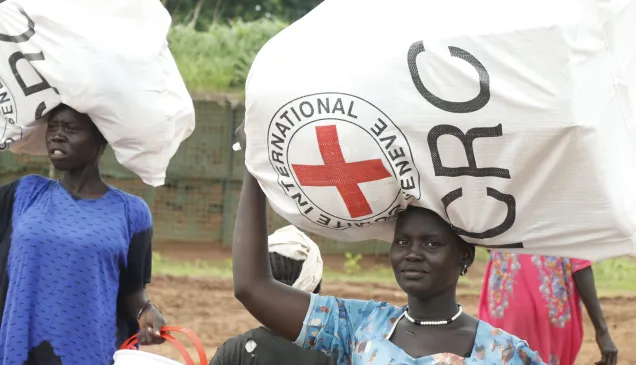South Sudan: Surviving cholera outbreak in Juba following upsurge in violence
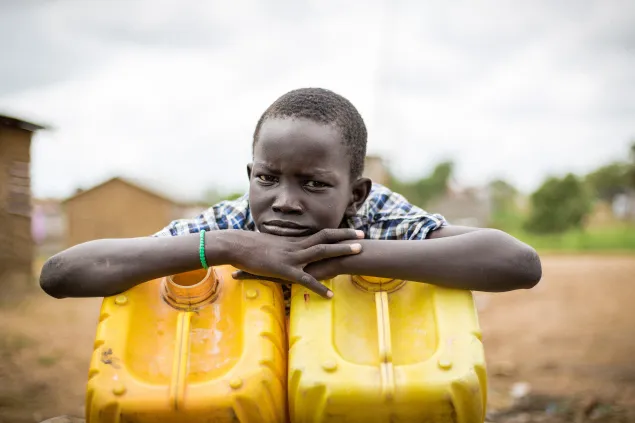
Georgi waiting in line at one of the ICRC water distribution points.
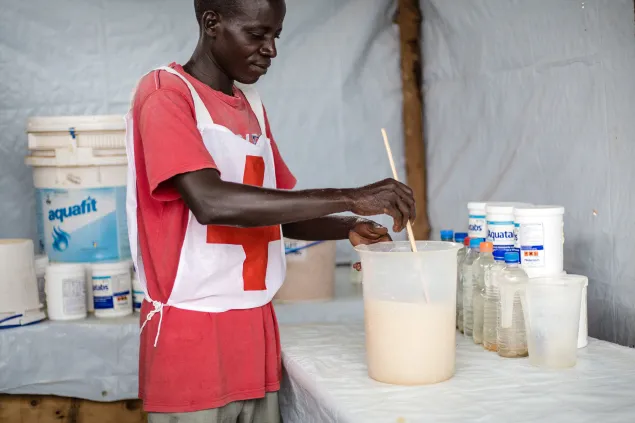
ICRC water treatment plant, Lologo, Juba, South Sudan.
A South Sudan Red Cross volunteer trained by the ICRC prepares chemicals to treat water and make it fit for human consumption.
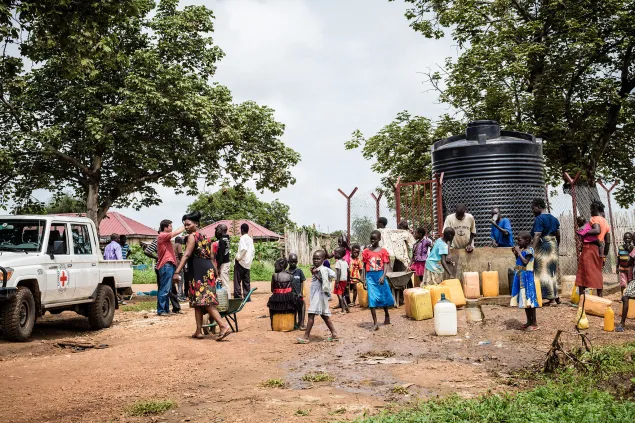
Juba, South Sudan.
People collecting clean drinking water at one of the ICRC water distribution points. To help stop the spread of cholera the ICRC installed these water points in cholera prone-areas around Juba.
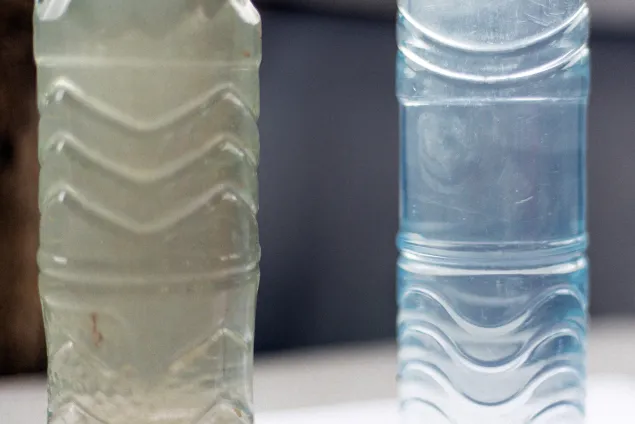
ICRC water treatment plant, Lologo, Juba, South Sudan.
Samples of treated and untreated water side by side.
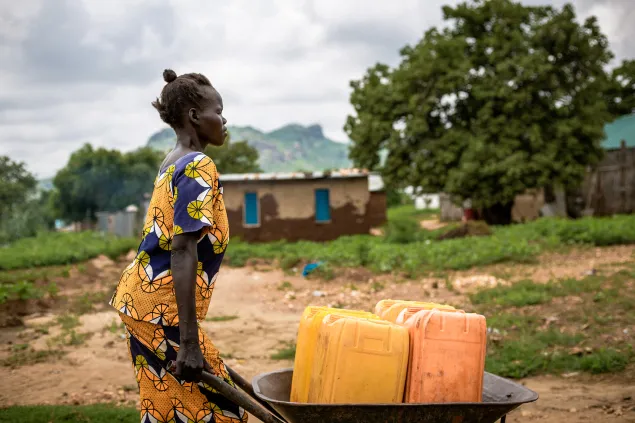
Juba, South Sudan.
Veronica taking water home to her family.
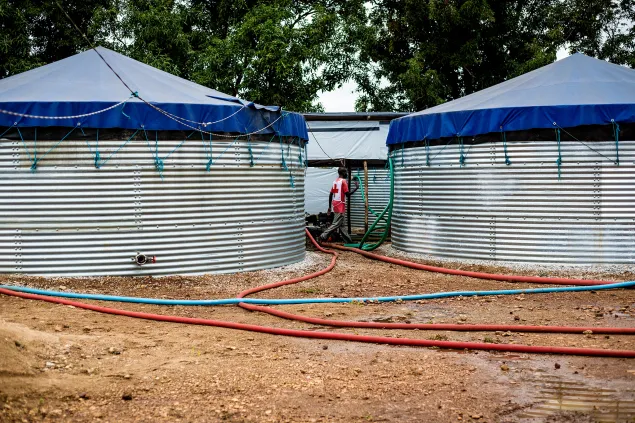
ICRC water treatment plant, Lologo, Juba, South Sudan.
A South Sudan Red Cross volunteer trained by the ICRC is adding chemicals to water reservoirs to make the water drinkable.
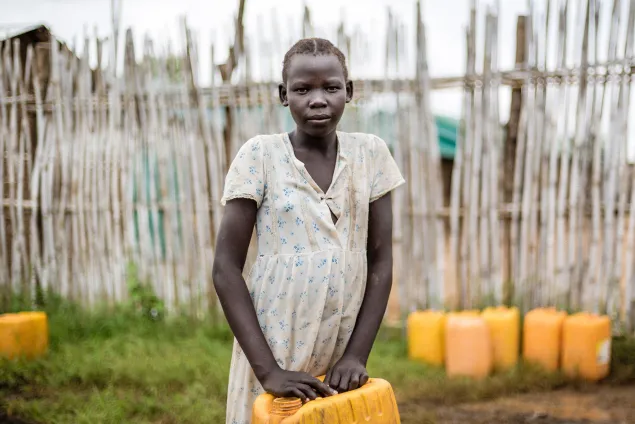
Juba, South Sudan.
Jennifer at one of the ICRC water distribution points.

ICRC water treatment plant, Lologo, Juba, South Sudan.
Water tankers line up to be filled with clean drinking water at the ICRC water treatment plant. In Juba the water distribution network does not reach all areas, so the population relies heavily on water distributed by commercial tankers.
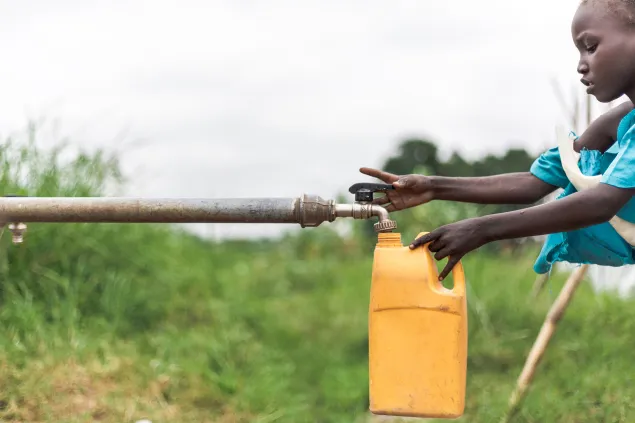
Juba, South Sudan.
A young girl collects clean drinking water from one of the ICRC water distribution points.
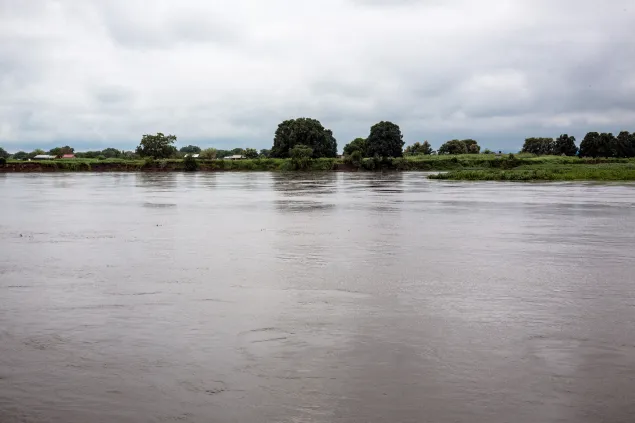
ICRC water treatment plant, Lologo, Juba, South Sudan.
The Nile River is the main source of water in Juba. Many people consume untreated water directly from the river. This can lead to the spread of water-borne diseases like cholera. Cholera epidemics occur every year.
The July outbreak of violence in Juba forced people to flee their homes. Scores were injured or killed. In Juba the water distribution network does not reach all areas and the population relies heavily on water delivered by commercial tankers. Because of the lack of security some areas are difficult to access, so water supplies have become irregular.
A lack of clean water leads to an increase in water-borne diseases like cholera. Some 1,000 cases have already been reported in the current outbreak. Immediately after the beginning of the fighting, the ICRC activated an emergency water treatment plant and started producing clean water and helping to deliver it to displacement sites and health facilities.
Read more:
South Sudan: Surviving upsurge in violence and keeping safe from cholera – Q & A

